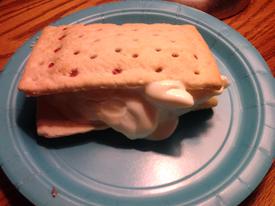does it matter how active if still eating back cals?

rocket_ace
Posts: 380 Member
so 3 examples:
(person 1) eat only 1400, no exercise
(person 2) eat 1400 calories, do 600 cals of exercise, eat an additional 600 calories
(person 3) eat 1400 cals, do 2000 cals of exercise, eat an additional 2000 calories to compensate.
Would any of these 3 people be in a better position to lose weight?
so you are basically supposed to shoot for 2lbs a week, which translates to about a 1000 calorie deficit a day (ie - buring 1 lb fat takes 3500 kcal, 2 lbs takes 7000 kcal, so 7000 divided by 7 days equals 1000 calories less taken in daily than expended). You can use the TDEE - 20% or just use the MFP calculations, they all work, and are all only approximate (and can't specifically predict any one person's experience).
So, I get this.
But, I'm curious, all else being equal, does it matter which range the 1000 kcal deficit is at? Let me explain. You could theoretically just do diet alone. so let's use my example, where MFP has about 1400 kcal alotted for me daily. I enter in physical activity, and it gives me more calories to eat, and its set up at the max for me to lose 2lbs a week.
But, while still keeping 1000 deficit in mind (automatically included in the case of MFP), if I did a combination of heavy weights and cardio on a day for say 800 calories burned, I need to eat those back so as not to exceed the 1000 calorie deficit). This seems to me like the best, healthiest option because being physically active is important for long term health.
BUT, would I lose weight any faster? Putting aside the possibility that someone who doesn't eat back calories, or in the case of diet-only, just severely under-eats, and that choice effects their weight loss program in some unknowable way (like causing more rapid weight loss, or perhaps even stopping all weight loss). Putting that aside, if someone just ate back calories, would they lose weight any fast at higher levels of activity if they are still at the same ration of a 1000 calorie deficit?
(person 1) eat only 1400, no exercise
(person 2) eat 1400 calories, do 600 cals of exercise, eat an additional 600 calories
(person 3) eat 1400 cals, do 2000 cals of exercise, eat an additional 2000 calories to compensate.
Would any of these 3 people be in a better position to lose weight?
so you are basically supposed to shoot for 2lbs a week, which translates to about a 1000 calorie deficit a day (ie - buring 1 lb fat takes 3500 kcal, 2 lbs takes 7000 kcal, so 7000 divided by 7 days equals 1000 calories less taken in daily than expended). You can use the TDEE - 20% or just use the MFP calculations, they all work, and are all only approximate (and can't specifically predict any one person's experience).
So, I get this.
But, I'm curious, all else being equal, does it matter which range the 1000 kcal deficit is at? Let me explain. You could theoretically just do diet alone. so let's use my example, where MFP has about 1400 kcal alotted for me daily. I enter in physical activity, and it gives me more calories to eat, and its set up at the max for me to lose 2lbs a week.
But, while still keeping 1000 deficit in mind (automatically included in the case of MFP), if I did a combination of heavy weights and cardio on a day for say 800 calories burned, I need to eat those back so as not to exceed the 1000 calorie deficit). This seems to me like the best, healthiest option because being physically active is important for long term health.
BUT, would I lose weight any faster? Putting aside the possibility that someone who doesn't eat back calories, or in the case of diet-only, just severely under-eats, and that choice effects their weight loss program in some unknowable way (like causing more rapid weight loss, or perhaps even stopping all weight loss). Putting that aside, if someone just ate back calories, would they lose weight any fast at higher levels of activity if they are still at the same ration of a 1000 calorie deficit?
0
Replies
-
Excessive cardio can cause adaptive thermogenesis so you'd be burning fewer calories. Doing no exercise is bad for your health but you'd lose weight as long as you still have a deficit. Both of these will also cause significant muscle loss. Eating at a calorie deficit and lifting will help preserve muscle while burning some calories.0
-
I think you are thinking about it wrong. If your goal is to lose the most amount of weight at all costs, all 3 are technically equal.
People lift, exercise and what not to avoid becoming skinny fat. Here is a google image search on skinny fat to illustrate. This is also the spark that sets people off into rages over women becoming to bulky or not.
It cut off a little, but the after picture on the right is heaver than the one on the left. So would you tell that girl to stop working out so she could lose that weight again?
Just to tag on a little, this is poor example of the whole cadio vs lifting debate too. Personally I just run and lift. Given the option, I'd take any of the bodies. aka word class athletes. 0
0 -
so 3 examples:
(person 1) eat only 1400, no exercise
(person 2) eat 1400 calories, do 600 cals of exercise, eat an additional 600 calories
(person 3) eat 1400 cals, do 2000 cals of exercise, eat an additional 2000 calories to compensate.
Would any of these 3 people be in a better position to lose weight?
so you are basically supposed to shoot for 2lbs a week, which translates to about a 1000 calorie deficit a day (ie - buring 1 lb fat takes 3500 kcal, 2 lbs takes 7000 kcal, so 7000 divided by 7 days equals 1000 calories less taken in daily than expended). You can use the TDEE - 20% or just use the MFP calculations, they all work, and are all only approximate (and can't specifically predict any one person's experience).
So, I get this.
But, I'm curious, all else being equal, does it matter which range the 1000 kcal deficit is at? Let me explain. You could theoretically just do diet alone. so let's use my example, where MFP has about 1400 kcal alotted for me daily. I enter in physical activity, and it gives me more calories to eat, and its set up at the max for me to lose 2lbs a week.
But, while still keeping 1000 deficit in mind (automatically included in the case of MFP), if I did a combination of heavy weights and cardio on a day for say 800 calories burned, I need to eat those back so as not to exceed the 1000 calorie deficit). This seems to me like the best, healthiest option because being physically active is important for long term health.
BUT, would I lose weight any faster? Putting aside the possibility that someone who doesn't eat back calories, or in the case of diet-only, just severely under-eats, and that choice effects their weight loss program in some unknowable way (like causing more rapid weight loss, or perhaps even stopping all weight loss). Putting that aside, if someone just ate back calories, would they lose weight any fast at higher levels of activity if they are still at the same ration of a 1000 calorie deficit?
I think excessive cardio can do more harm than good a lot of times, but 2 lbs a week might work for someone with a great deal of weight to lose. If you only have 10-20 lbs though 2lbs a week really isn't realistic imo.0 -
It can definitely matter. If you are not doing any exercise, metabolism tends to slow down to match the calorie intake. Then any increase in calories brings the weight right back on again, in a sense setting yourself up for failure.
By exercising (especially cardio), you keep that metabolism going. However, as one commenter mentioned, if all you do is cardio, you will lose muscle along with the fat. With resistance training (weights & similar), you build muscle, which burns more calories than the fat so that, when you stop the calorie deficit and go back to "normal" calorie intake, you will have set yourself up better for successful weight management. The best management is to do both cardio and resistance training, thereby keeping the metabolism going and maintaining muscle mass. Seems that the body actually does better to not overdo in any one of these areas (needs time to recover), so alternating days for cardio and resistance training can be good for your weight management, muscle mass, and heart health.
On a personal note, though, I have always found it easier to lose weight when I remain physically active. For me, a good workout often puts the munchies at bay. Plus it takes my mind off of food and puts it elsewhere, especially when engaged in outdoor or group activities. I just have to remind myself on occasion (OK, frequently and repeatedly) that I didn't become overweight and out of shape overnight, so not to expect it to be a quick fix and will take some time to get back in shape and the weight back down again.0 -
thanks guys - great points! basically this mirror's my thinking - that even though the numbers should work regardless of activity (or no activity), having some activity (particularly a combo of strength and cardio) is the best way to maximize not only health but long term fat loss/body composition0
-
Just to tag on a little, this is poor example of the whole cadio vs lifting debate too. Personally I just run and lift. Given the option, I'd take any of the bodies. aka word class athletes.
This is a great example of the different types of muscles. Short, bunchy muscles are great for short bursts of speed. Long, lean muscles are needed for distance.0 -
Also HIIT cardio and weight training will build muscles, so that your baseline metabolism not only doesnt decrease, but you are increasing your metabolism over time.
Also not sure if true or not, but I remember hearing that exercise boosts the amount of calories burned well after you stop. Not sure if there is a study on it or not.0 -
I used to be the person who didnt eat back my exercise cals, and admit I lost the most weight that way. but when I started actually working out hard I needed my extra calories. Even eating back my cals i'm still under my TDEE and so thats all that i find that actually matters. This isnt rocket science, MFP causes people to really over think this whole weight loss thing.0
This discussion has been closed.
Categories
- All Categories
- 1.4M Health, Wellness and Goals
- 398.5K Introduce Yourself
- 44.7K Getting Started
- 261K Health and Weight Loss
- 176.4K Food and Nutrition
- 47.7K Recipes
- 233K Fitness and Exercise
- 462 Sleep, Mindfulness and Overall Wellness
- 6.5K Goal: Maintaining Weight
- 8.7K Goal: Gaining Weight and Body Building
- 153.5K Motivation and Support
- 8.4K Challenges
- 1.4K Debate Club
- 96.5K Chit-Chat
- 2.6K Fun and Games
- 4.8K MyFitnessPal Information
- 18 News and Announcements
- 21 MyFitnessPal Academy
- 1.5K Feature Suggestions and Ideas
- 3.2K MyFitnessPal Tech Support Questions






